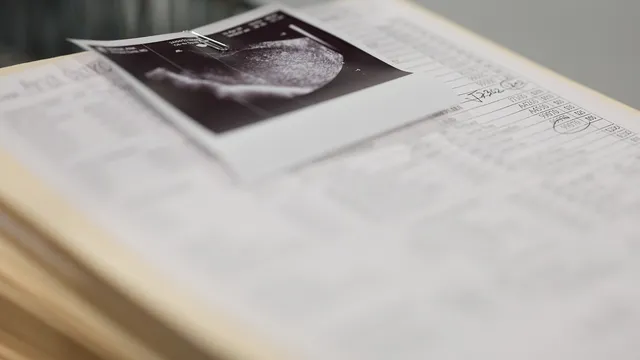A 30-year-old pregnant woman in the southeastern state of Georgia has been kept on life support for three months despite being declared brain dead due to abortion restrictions in the state, the woman's mother said, according to AFP.
April Newkirk said the decision to keep her daughter Adriana Smith alive was made without the family's consent.
“This decision should have been left to us,” she told local television.
Newkirk said Smith, a registered nurse, had suffered severe headaches in February when she was nine weeks pregnant. Her first visit to the hospital ended with her being prescribed medication.
The next morning, when she was taken to the hospital where she worked, doctors found multiple blood clots in her brain and she was declared brain dead.
Georgia law prohibits all abortions after the sixth week of pregnancy — one of the so-called “heartbeat laws” that refer to the approximate first detection of a fetal heartbeat.
Since Smith was in her ninth week, doctors were hesitant to do anything that could violate the law, according to Newkirk.
Smith has been on life support since then and is now in her 21st week of pregnancy.
“I'm not saying we would have chosen to terminate her pregnancy, I'm saying we should have had the choice,” Newkirk added.
Smith, who has a son, is being kept on life support to carry the fetus to term, although according to Newkirk, doctors are not sure the pregnancy will be viable or without health complications.
Katie Watson, a professor at Northwestern University specializing in medical ethics and reproductive rights, argues that abortion law does not apply to cases like Smith's.
“Georgia's abortion law has nothing to do with removing a ventilator from a brain-dead person. It says nothing about that, even if that person is pregnant at the time of death,” Watson explained.
“If the information the family received from the hospital is accurate, the hospital has made a surprising misinterpretation of Georgia's abortion law,” she added.
Watson said it was possible that the hospital's actions were motivated by fear of legal liability, “which is a chilling effect of these laws” against abortion.
Emory Healthcare, where Smith is being treated, did not immediately respond to a request for comment.
The saga sparked a strong reaction from Democrats and abortion rights organizations.
“Everyone deserves the freedom to decide what is best for their family, their future, and their life,” Georgia Democratic Congresswoman Nika Williams wrote in a statement.
Williams accused US President Donald Trump and Georgia Governor Brian Kemp, both Republicans, of “forcing people to endure unimaginable pain.”
“Being Black and pregnant in a state where reproductive care is restricted and criminalized is deadly,” said Monica Simpson, executive director of SisterSong, a group that advocates for the reproductive health rights of women of color.
Following the US Supreme Court's decision to end federal protection of abortion rights in 2022, states such as Georgia have passed strict anti-abortion laws.
Trump, who appointed three conservative judges to the Supreme Court during his first term, often boasted that he had contributed to the overturning of the Roe v. Wade decision, which guaranteed the right to terminate a pregnancy. |BGNES

 Breaking news
Breaking news
 Europe
Europe
 Bulgaria
Bulgaria







